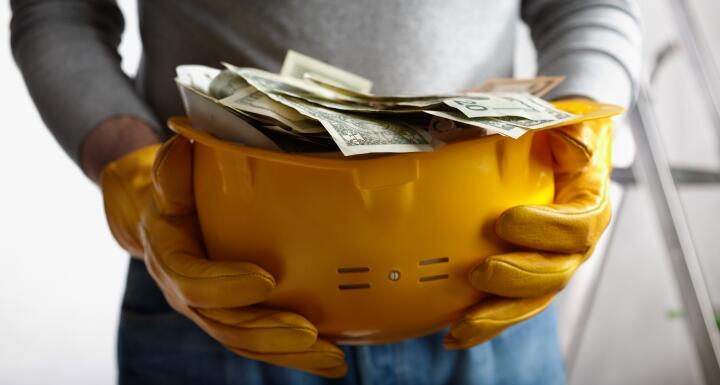A contractor has finished work on a construction project in North Carolina and submitted a written request for final payment to the owner of the real property that has been improved by the construction.
The owner is concerned about having to deal with liens from subcontractors and suppliers after final payment is made. This article examines the circumstances under which an owner can make final payment without this concern.
The North Carolina law governing the assertion of liens by mechanics, laborers, and materialmen who furnish labor, material, or services to improve real property is complex. It consists of a patchwork of statutes enacted and amended at different times to address particular issues. It also involves a body of case law interpreting and applying these statutes that has developed as the statutes have been enacted and amended. The statutes and case law are applied to determine, among other things, whether a right to assert a lien exists and, if so, the extent and priority of such lien. Not surprisingly, this law gives owners, who want to avoid liens and a risk of having to pay twice for construction, pause when parting with their funds to pay a contractor.
Notwithstanding the complexity of the law, there is a circumstance under which an owner can safely make final payment to a contractor (who, for the purposes of North Carolina law and this article, is any contractor who contracts directly with the owner and is commonly referred to as a "general contractor," as opposed to a subcontractor who contracts only with a contractor) without concern for potential lien claims from subcontractors or suppliers. If the owner makes final payment to a contractor (and the payment is accepted by the contractor as final payment) at a time when the owner does not have proper written notice of any lien claim from a subcontractor or supplier who dealt with that contractor, the making of the final payment will protect the owner from the assertion of any valid lien claim made by any such subcontractor or supplier after final payment was made.
This simple, bright-line rule makes sense. Generally, two kinds of liens arising out of construction projects are recognized in North Carolina:
- The contractor may assert a lien against the owner's improved real property (if this right exists, it can be exercised through subrogation by some subcontractors or suppliers under certain circumstances); and,
- Some subcontractors or suppliers may assert a lien against any funds owed by an owner or a higher tiered contractor, subcontractor, or supplier.
These liens secure the right to be paid for work performed to improve the owner's real property. When an owner makes final payment to a contractor and the contractor accepts final payment, there are no more funds owned to the contractor. If no funds are owned to the contractor, then:
- The contractor has no right to assert any lien against the owner's improved real property;
- No subcontractor or supplier has any right to assert a lien on funds owed by the owner to the contractor; and,
- No subcontractor or supplier has the ability, through subrogation, to assert a contractor's lien against an owner's improved real property because the contractor no longer has such a lien.
A comment and a caveat must be added:
Comment: Although the making of final payment effectively cuts off lien rights, it is well-advised for an owner to require any contractor to provide a comprehensive final lien release, commonly called a "lien waiver," at or before the time final payment is made.
Caveat: If an owner has proper written notice of a lien claim from a subcontractor, then the owner is obligated by law to withhold from payment to the contractor an amount sufficient to satisfy and pay the subcontractor's lien claim, and final payment, therefore, should not be made by the owner until the subcontractor releases, or "waives," the noticed lien claim. If the owner does not require this and the subcontractor is not paid by the contractor, the subcontractor's lien on funds will become the even more problematic direct lien on the owner's improved real property. If this occurs and the owner cannot get the paid contractor to "refund" the erroneously paid funds to the owner (or to do the right thing and pay the subcontractor), the owner may well have to make a "double payment" (that is to pay the amount that is the subject of the subcontractor's lien claim twice) in order to clear title to the improved real property.








